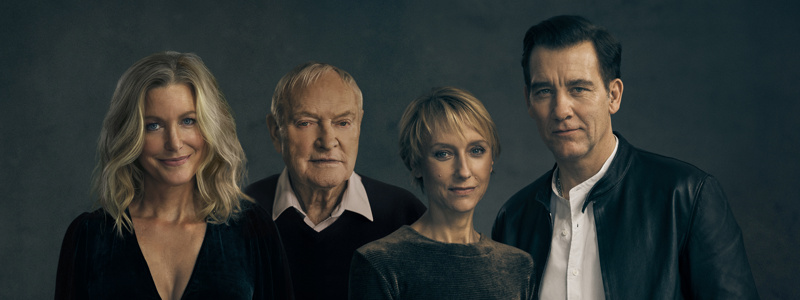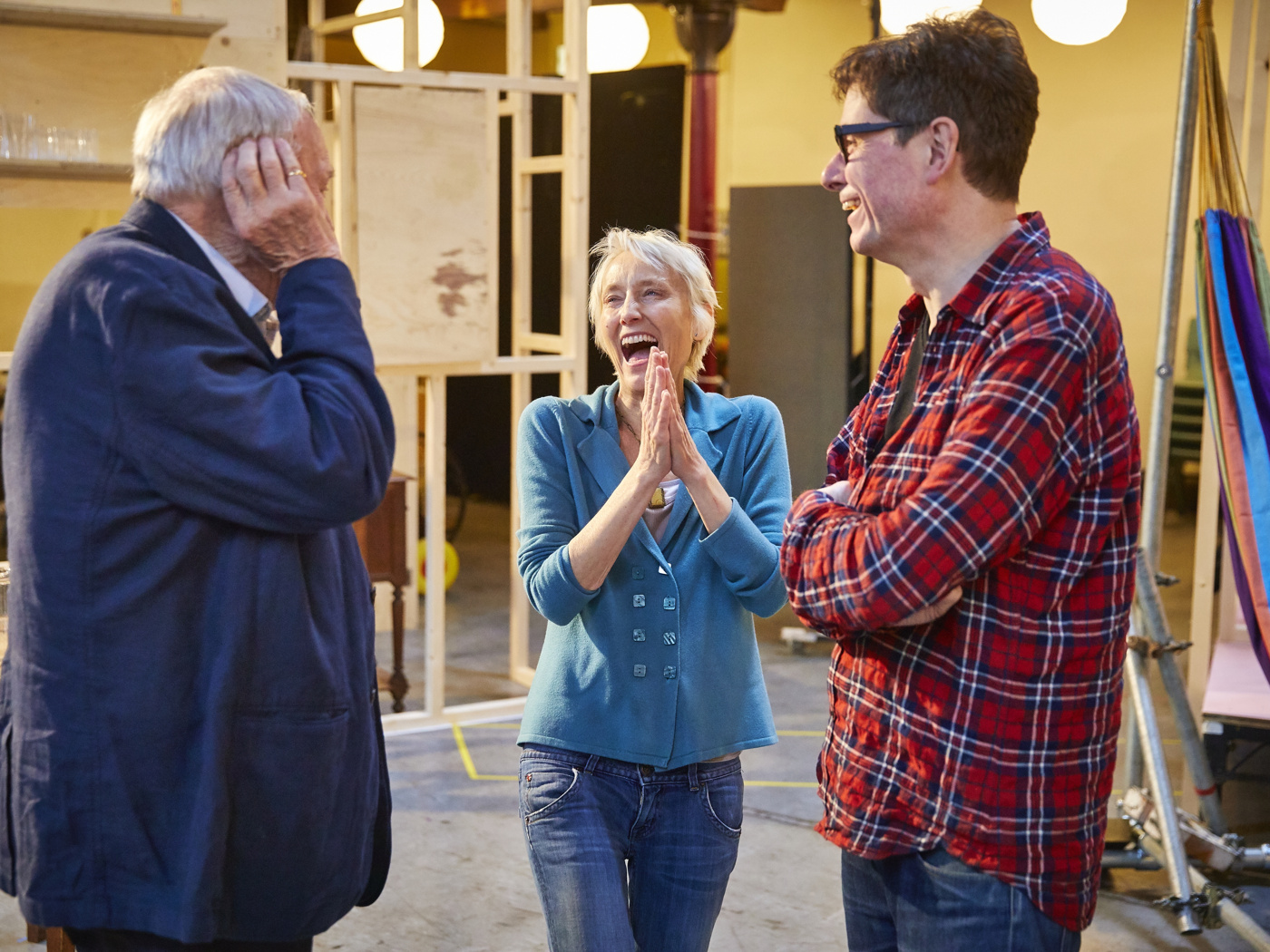
(Photo courtesy of Storyhouse PR)
Tony Nominee Lia Williams on Starring in London's The Night of the Iguana Opposite Anna Gunn and Clive Owen and Being in Her Prime
Lia Williams needs no introduction as a supreme actress, whether on Broadway in Skylight [for which she was nominated for a 1997 Tony Award] or Arcadia or across a range of work closer to home ranging from Mamet’s Oleanna and Schiller’s Mary Stuart to her blazing star turn last year at the Donmar in The Prime of Miss Jean Brodie. She is back in the West End this summer alongside Clive Owen and Anna Gunn in a rare local sighting of Tennessee Williams’ The Night of the Iguana, which was nearing its first preview at the Noel Coward Theatre when the ever-eloquent Williams joined Broadway.com for a chat.
Does doing this play feel like a date with destiny, given that you and Tennessee Williams share a last name?
It does make me smile. In Ireland, where I’ve done several of his plays. they call him Tennessee “the bird” Williams, and he really is in the way that his writing takes wing. He can be extraordinarily poetic and yet the trick is not to make it sound like poetry.
Should we be surprised that you did both Eccentricities of a Nightingale and A Streetcar Named Desire in Dublin, but neither of those productions found their way to London?
It wasn’t ever intended to do anything else with them, and I have to say, I love performing in Ireland: the audiences are natural storytellers and just love a great big story. The response is so alive and genuine and both those plays were loved there—really celebrated.
So, The Night of the Iguana therefore marks your London debut with Williams?
It does, amazingly, and with a play I had never read and hadn’t seen, nor had I seen the film. [The director] James Macdonald sent me the script and about halfway through, I accepted the job. I feel like this is a story that needs to be told now.
In what way?
We live in quite brutal times socially and politically, and this is a play about forgiveness and compassion and generosity. That’s an important discussion for us to have.
What do you make of your character, Hannah Jelkes, an itinerant artist who possesses a combination of serenity and strength rarely found onstage?
Hannah’s got a very strong core and has to, I think, in order to be that compassionate and generous. She has battled through a lot of demons to arrive at the place where she has. She’s so nuanced and so mercurial that it’s quite a task to weave all the threads of her so that it looks effortless. That’s a real acting challenge.

Does she feel like a different sort of person from Blanche or Alma, the Williams heroines you have played before?
She’s totally different: I don’t think Tennessee ever wrote another character like Hannah. He wrote her because he needed a guardian angel for himself and so created one. He was at a stage in his life where he was hanging on by a thread, and so he created Hannah to watch over him. I really do feel that.
Given that actors, of course, are artists, do you connect to the artist in Hannah on that level, as well?
Yes, I do—you take on parts where you recognize things in yourself, and I think I identify with her hugely on all sorts of levels. All three of the main characters in this play are on a cliff edge in a hill somewhere in Mexico trying to wrestle with the question of who we are. Essentially the play is about how to live beyond despair and still live, and those big ideas are refreshing right now, I think.
How has it been in rehearsals with Clive Owen, who plays Reverend Shannon, and Anna Gunn, making her London theater debut as Maxine?
It’s gone fantastically well. Clive and Anna are both consummate actors, absolutely brilliant. We are three extremely different instruments but when it zings, the hope is that we play a very beautiful tune.
Do you like to do research when you take on a Williams role?
Very much so. I’ve been to Clarksdale, Mississippi, where he lived with his grandfather, and I went to New Orleans to see the apartment where he wrote Streetcar. I feel as if the closer I get to the writer, the better I’ll understand the character. He wrote himself into his women as much as his men, and I knew that by getting close to him, I could find a way into Alma or Blanche.
Did this play prompt a trip to Mexico?
[Laughs.] I haven’t had time; otherwise I probably would have done—though I did go to Mexico City many years ago.
Having done Pinter, Aeschylus, Schiller and The Prime of Miss Jean Brodie all in pretty fast succession—and now Williams—is it safe to say that you are in your prime?
It actually does feel that way! It feels like I’m ready to take on great challenges and that they are coming: those roles are coming my way—complex women who are layered and interesting and not just types. And maybe you need to be my age to play these women: maybe age and experience are actually a really useful thing.
Isn’t there talk of that 2015 Almeida production of The Oresteia [Aeschylus’ time-honored tragedy] going to New York?
That’s the plan, and I’m over the moon about that. It’s just one of the greatest productions I’ve ever been involved in: a big family story that takes you to the edge of the human condition. It’s a phenomenal piece of theater, I think.
And how excited are you about the rise and rise of your son [the actor Joshua James], who seems to be in his own prime? [James had a lead in the just-finished Samuel Adamson play Wife.]
It’s all fantastically exciting. Josh has just got a six-part series written by Mike Bartlett (King Charles III) playing a leading role with Victoria Hamilton. That’s exciting, too!
Isn’t it time for you and Josh to do a play together?
That’s our next thing: we’re working on it!